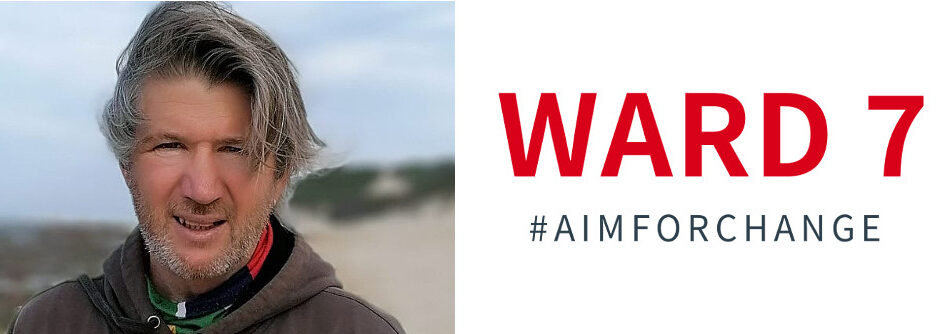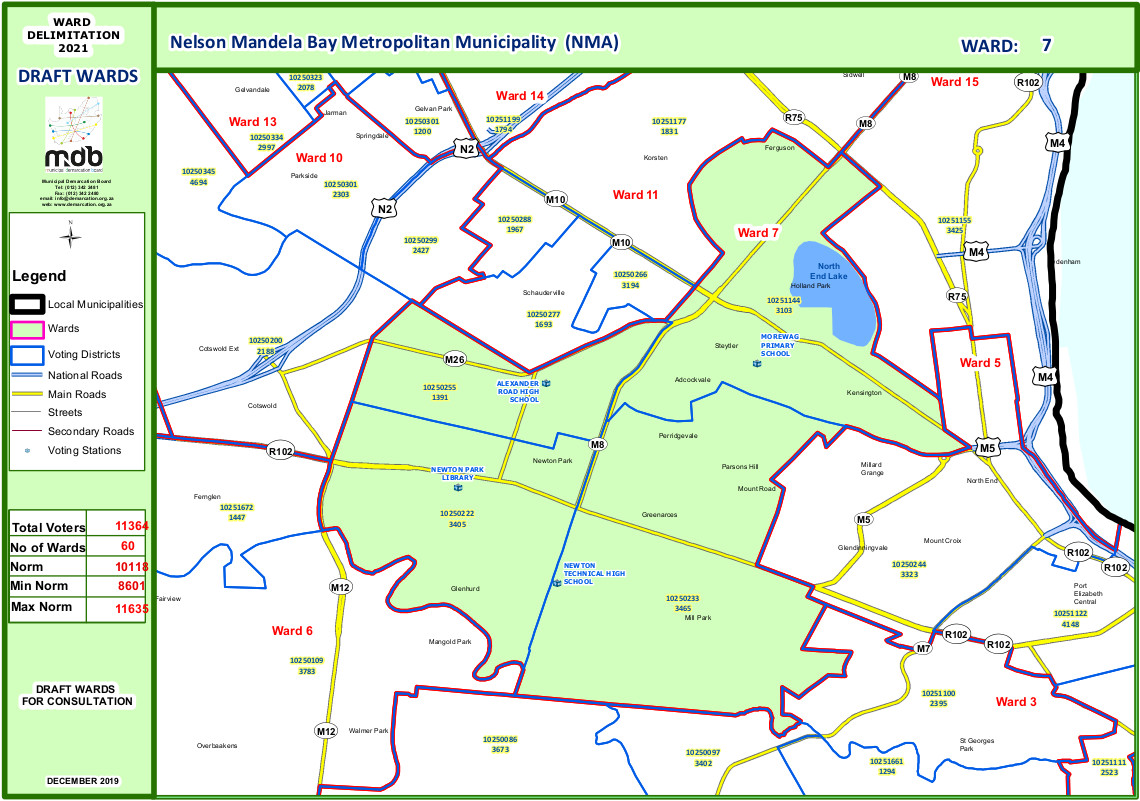The way that I personally feel about the name change from Port Elizabeth to Gqeberha is best encapsulated in the words on the ABOUT page of the newly established MyGqeberha web site:
MyGqeberha.com is a publication from the fertile minds that established MyPE.co.za in December 2004. The late Hilton Shorrock and I (Alan Straton) began MyPE as a ‘bit of fun’, a place to allow people to talk freely and a place where we could meaningfully contribute to the wider community.
For 15 years we have poured our love and effort into MyPE and now the name change from Port Elizabeth to Gqeberha has given us an opportunity to continue doing so. We realise that our identity and audience is with the people that we serve and not with a geographical name – we will always be the ‘Friendly City’, we will always be THOSE people who stop and talk and assist a stranger, we will always be THOSE people who are loving and kind.
SO
On Monday 22 February 2021 we went to sleep in Ward 7, Port Elizabeth, Nelson Mandela Bay, South Africa.
On Monday 23 February 2021 we went to sleep in Ward 7, Gqeberha, Nelson Mandela Bay, South Africa.
On 23 February approval and gazetting of the name by the Minister of Sports, Arts and Culture, Nathi Mthethwa took place.
The reactions to the name change from Port Elizabeth to Gqeberha have been predictable and interesting.
The process to undo it will be long and arduous.
The DA has come out against the name change with the DA Mayor Nqaba Bhanga saying; “I am opposed to the name changes of Port Elizabeth and Uitenhage. I have written to the Minister of Sports, Arts and Culture, Mr Nathi Mthethwa, to express my concern – not only with the process that was followed to change these names but also the outcome thereof.”
“I am of the opinion these new names are not inclusive and, in fact, have no isiXhosa meaning. While not disputing the need for geographical names that portray an inclusive country, I believe that these names have no relation to and/or connection to the people of our Metro. A question lingers regarding meaningful public participation conducted, and the inputs received. I am pleased to see that other political parties in Nelson Mandela Bay agree with me on the matter. I will explore further actions to be taken to stop these ill-advised changes,” continued Bhanga.
Godfrey Albertyn said; “We should be doing both, changing names and improving the economy. Politicians have been totally useless, and it’s a shame that we’re still changing names almost 30 years on!”
Greg said; “Well done Mr Mayor. Our existing names like Port Elizabeth, has historical value to all our citizens. Our brothers & sisters knows the city as iBayi. Nevertheless, as you attempting to rebuild the city, changing names will also cause deep confusion to our foreign visitors.”
As in every argument we can see Their Truth, Our Truth and somewhere in the middle is the Actual Truth.
It appears to me that we in Port Elizabeth have existed in an uncomfortable vacuum since 1994 and those who were ‘custodians of the name’ failed to do a decent enough job to desensitise and promote the name of our city to all of it’s residents.
Most of us employed the throw away line that Port Elizabeth was named for love when a broken hearted Sir Rufane Donkin proclaimed the City be named after his deceased young wife Lady Elizabeth Donkin, erecting a memorial to her and proclaiming the Donkin Reserve to be public space in perpetuity.
Port Elizabeth owes its origin and development to the arrival of British settlers in 1820. Sir Rufane Donkin was the Acting Governor of the Cape at the time and his deceased wife, Lady Elizabeth Donkin, had died at Murat at the age of 28, in Upper Hindustan, on 21 August 1818, before his secondment in South Africa. Shortly after the arrival of British settlers in the Bay, Donkin had a pyramid of stone built on the hill above the harbour, and established a reserve of about 4 hectares around its base. It was declared a National Monument under old NMC legislation on 8 July 1938.
The effect on Sir Rufane Donkin after her death was immense, and to such an extent was placed on leave from his post, however he was given the task of organising the 1820 Settlers in Port Elizabeth. He was officially the first governor of PE from the 6 June 1820 – 1821. His wife Elizabeth was buried in Meerut in India but her heart was embalmed at his request.
On his return to England he married Anna Maria Elliot in 1832, but the loss of his first love lay heavily on his soul, and in August 1841 he committed suicide. His father died the same year in March just before the death of his son. Sir Rufane Donkin was buried along with the embalmed heart of his wife. Love it is said is as strong as death!
A Touching historical story…
BUT
The arrival of the 1820 settlers represented an organised land grab to orchestrate a bulwark against marauding tribes. Essentially the 1820 settlers were front line troops paid on the promise of verdant farms and land up for grabs.
YES
Some of those settlers went on to success but most did not.
One could say that that set the tone for the next 200 years of conflict as Port Elizabeth witnessed the Boer War, First World War, Second World War, Apartheid and all the associated atrocities along the way.
Looking back one wonders what would have happened if the City had NOT been named for love?
Would we have witnessed even worse crimes against humanity (and horses – the only monument to horses killed in conflict is in Gqeberha).
If Elizabeth Donkin were to be alive today would she be happy that her name is associated with all our inhumane acts against each other?
YES
The manner in which the name change was finalised is questionable.
YES
The motivation for the name change is flimsy at least – it could have been given a much better ‘spin’.
NO
We do not expect the name change to be suspended.
LESSONS
- Every single mistake around names can be attributable to a politician.
- Maybe the time has come for us to take personal responsibility?


Please Contribute to a Better Ward 7 With a Comment